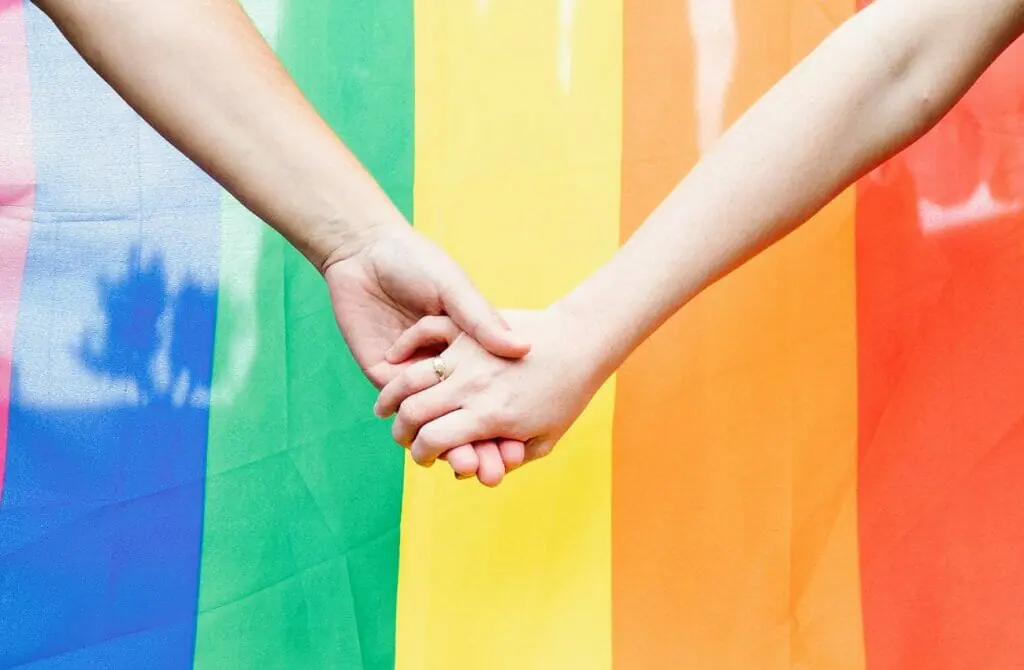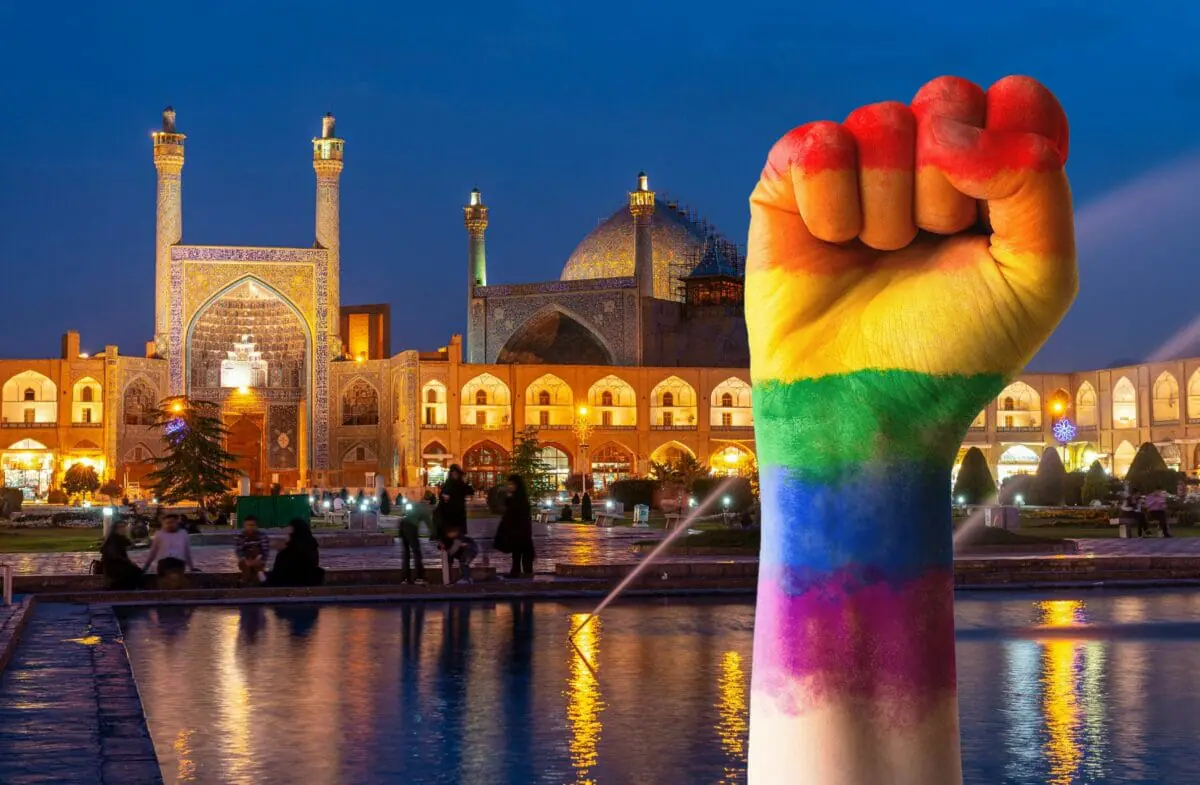Iran, known for its rich cultural history and stunning architectural sites, also possesses a complex landscape regarding LGBT rights in Iran. Sexual activity between members of the same sex is illegal in the country and can lead to severe consequences, including the death penalty. For transgender individuals, only sex reassignment surgery is recognized as a legal means of changing their assigned sex, creating a challenging environment for those who do not wish to undergo such procedures.
When comparing the experience of tourists to that of local LGBT individuals in Iran, it’s important to note that travelers are more likely to avoid targeted discrimination or harsh legal consequences due to their status as foreigners.
However, it would be prudent for LGBT tourists to exercise discretion and vigilance, as bad actors can be found in any society. Additionally, while tourists may enjoy a buffer due to their nationality, it is essential to be aware of the local climate and respect the struggles faced by LGBT Iranians, who often encounter severe persecution and violence.
Situations can change rapidly, and information may quickly become outdated. Consequently, it is vital for those considering travel to Iran to research current developments and seek advice from reliable sources regarding the status of LGBT rights in the country. Remaining well-informed and cautious will not only ensure a safer trip for the individual traveler but also demonstrate solidarity and support for the local LGBT community as they continue their fight for equality.
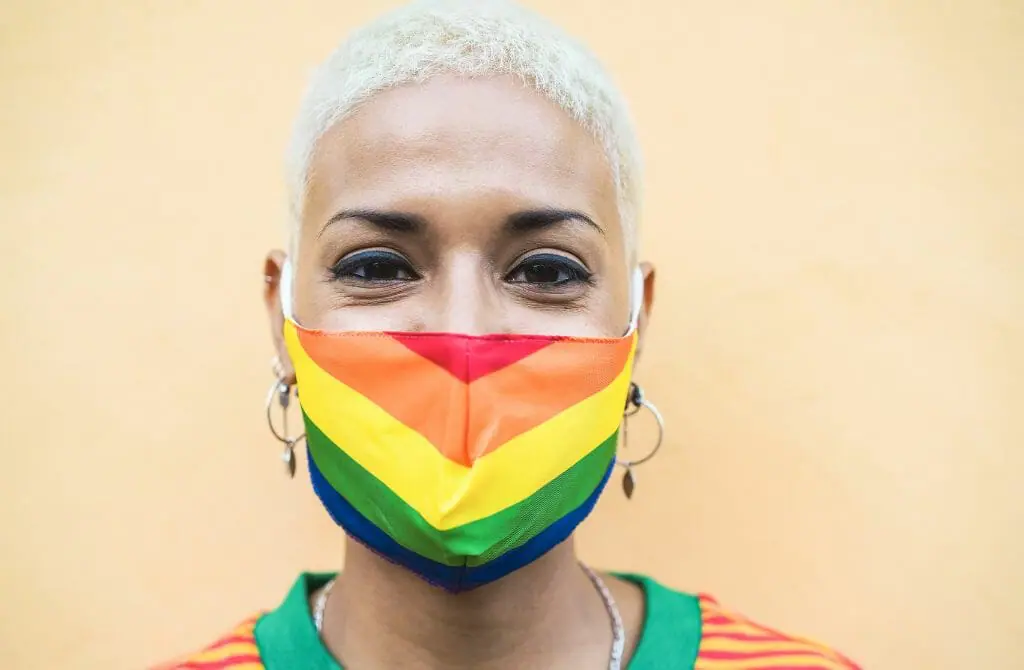

History Of LGBT Rights In Iran
The history of LGBT rights in Iran has been complicated and challenging. In pre-Islamic Iran, there was a tradition of pederasty, which came into conflict during the Achaemenid period. Interestingly, some ancient sources, such as Herodotus, claimed that Iranians had learned this practice from the Greeks.
In contemporary Iran, LGBT rights are severely restricted and face significant challenges. Same-sex relations are criminalized, and LGBTQ individuals are discriminated against in various aspects of life, such as housing, education, work, and healthcare. As a result, they are unable to seek protection from the authorities without risking prosecution themselves.
For tourists, it is essential to remember that the same laws and restrictions apply. While Iran has a rich culture and history that may be appealing to visitors, it’s crucial to understand and respect the local laws and customs relating to LGBT rights. Situations can change fast, so travelers should seek current advice before visiting the country.
It is vital for LGBTQ travelers to exercise caution and vigilance when visiting Iran. Be discreet about your sexual orientation and avoid displaying any form of affection or engaging in same-sex relations while in the country. This not only applies to public spaces but also to private accommodations, as local authorities have the right to search homes if suspicion arises.
To minimize potential risks and ensure personal safety, LGBTQ travelers should stay informed about local laws and attitudes. Be aware of your surroundings and trust your instincts. Connect with other queer travelers and allies via online forums or social media groups to gather insights and advice.
Please remember that situations can change rapidly, and information might be outdated. Always seek current advice before traveling and remain vigilant, as there are always bad actors in every country. By staying informed and cautious, LGBTQ travelers can make the most of their stay in Iran while prioritizing their safety and well-being.
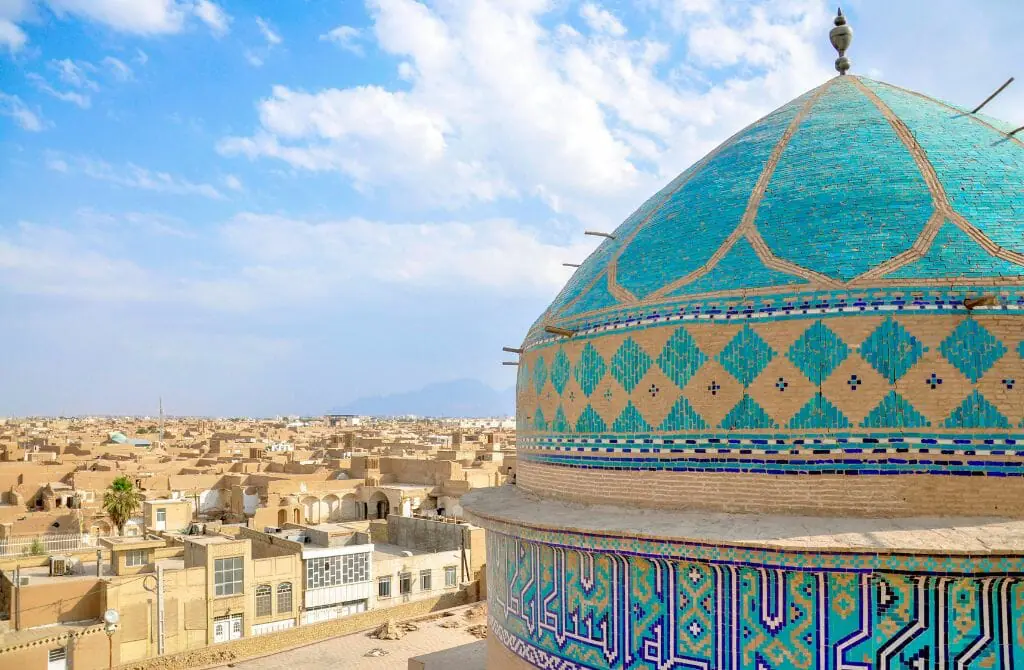

The LGBT Current Situation In Iran
LGBT rights in Iran present a challenging landscape for both locals and tourists alike. The Iranian government imposes strict regulations and punishments for homosexuality. Although transgender individuals may obtain legal recognition, they must undergo sex reassignment surgery, which is partially financially supported by the state. Consequently, some homosexual individuals have been pressured into sex reassignment surgery to avoid legal and social persecution.
As a tourist, one might expect a different treatment compared to local LGBTQ+ individuals; however, this is not necessarily the case. Although there may be instances where tourists are treated with more leniency, it is essential for LGBTQ+ travelers to be aware of and respect the local laws and cultural norms.
To protect yourself while traveling in Iran, consider taking the following steps:
- Remain discreet about your sexual orientation and gender identity, especially in public spaces.
- Stay informed about Iranian LGBTQ+ rights and the current political climate by following reputable news sources and obtaining updated information before traveling.
- Connect with local LGBTQ+ organizations and communities (if possible) for advice on navigating the social landscape and understanding the level of acceptance within different regions of the country.
- Travel with a trusted companion or group, as there is safety in numbers and having someone to support you in challenging situations can be invaluable.
- Consult local LGBTQ+ people, such as hotel staff, guides, or individuals you meet during your travels, to better understand the general attitudes and how they navigate the challenges they face.
It is crucial to remain vigilant, as the situation can change rapidly, and there are always bad actors in every country. Seek current advice before traveling, and always err on the side of caution. Despite these challenges, exploring the beauty and mystique of Iran can be an enriching experience, but it is vital for LGBTQ+ travelers to be informed and prepared to navigate the complexities of local LGBTQ+ rights with professionalism and respect.
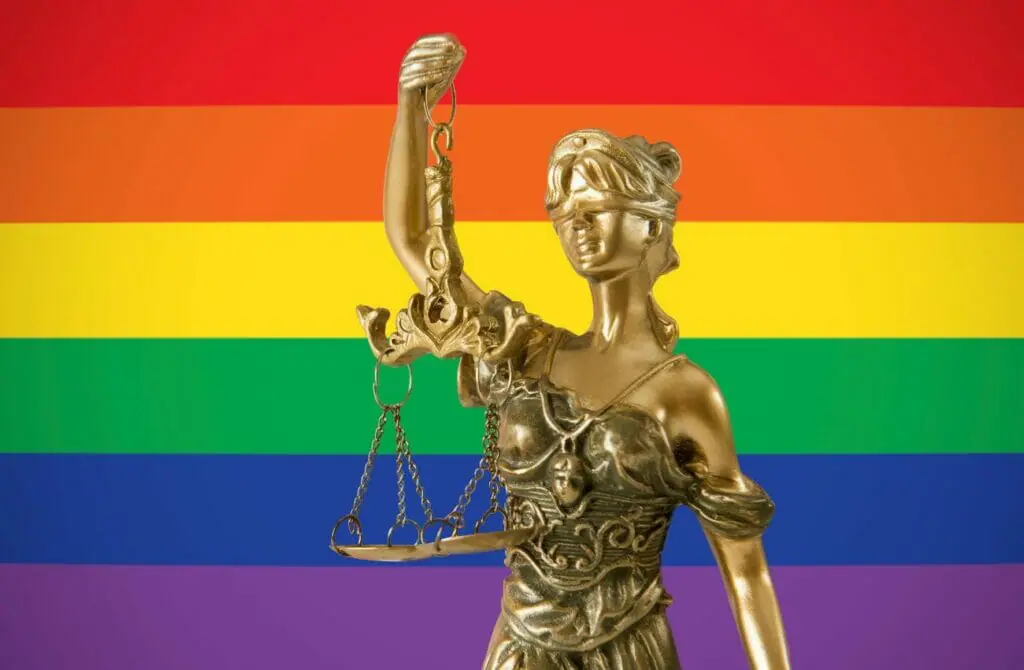

The Future For The Queer Community In Iran
As LGBT rights in Iran continue to face numerous challenges, it’s important to understand the different experiences between local individuals and tourists. While the LGBT community in Iran suffers from extreme rights violations and deadly violence by both the state and society, as a foreign traveler, you’re less likely to be directly targeted by these discriminatory practices. However, you should remain vigilant and aware of the potential risks during your stay.
To protect yourself, it’s crucial to maintain a low profile when it comes to your sexual orientation or gender identity. Stick to well-known tourist attractions and avoid risky situations or discussions that may expose you as an LGBT individual orally. Connecting with the local LGBT community may provide some insights and support, but keep in mind that it can still be dangerous for both parties involved, so always be cautious in these interactions.
While the future of LGBT rights in Iran remains uncertain, the international community must continue to support and advocate for equal rights and protections for all. As a traveler, you can play your part by staying informed and taking necessary precautions. Remember that circumstances can change quickly, and being aware of the current situation is essential for your safety.
Situations can change fast, and information can be out of date, so always seek current advice before traveling to Iran, particularly with regard to LGBT rights and safety. By remaining vigilant and well-informed, you can make the most of your experience while also staying safe in a complex and ever-changing environment.
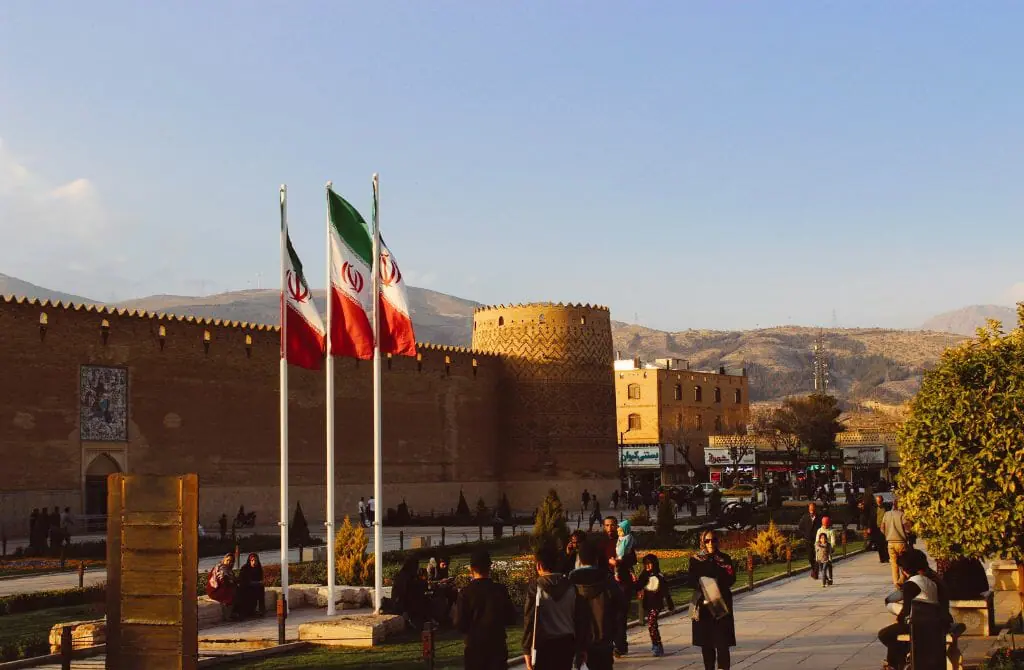
Protect Yourself While Travelling In Gay Iran
As a queer traveler, it’s crucial to understand and navigate the challenges that Iran’s LGBT community faces, particularly when it comes to the differences between local people and tourists. In Iran, sexual activity between members of the same sex is illegal and can be punishable by up to death. While tourists may experience more leniency, it is still essential to exercise caution and be aware of the legal situation.
To protect yourself as an LGBT traveler, consider the following steps:
- Research: Study the local laws, cultural attitudes, and potential risks you may face in Iran. Understanding the context will enable you to plan your trip with awareness and avoid unnecessary complications.
- Discretion: Unfortunately, public displays of affection between same-sex couples are not safe or accepted in Iran, and it is advisable to refrain from such expressions while traveling in the country. Maintain a low profile and exercise discretion in public spaces.
- Connect with local LGBT support organizations: Reach out to local organizations that advocate and provide resources for the LGBT community in Iran. You can seek their advice on any safety concerns and the most up-to-date information.
- Avoid sharing personal information: Exercise caution when sharing personal details or discussing your sexual orientation with strangers or even locals you meet during your travels. While many Iranians are welcoming and friendly, it’s essential to remain vigilant, as not everyone will have your best interests at heart.
- Travel with awareness: While it’s important to remain cautious, don’t let fear dictate your travel experience. Embrace the rich culture and beauty of Iran while being mindful of its restrictions and challenges.
Remember that situations can change rapidly, and information may become outdated. Always seek current advice before embarking on your journey. As a responsible traveler, it is your duty to ensure your safety while supporting and respecting the local communities you encounter.
